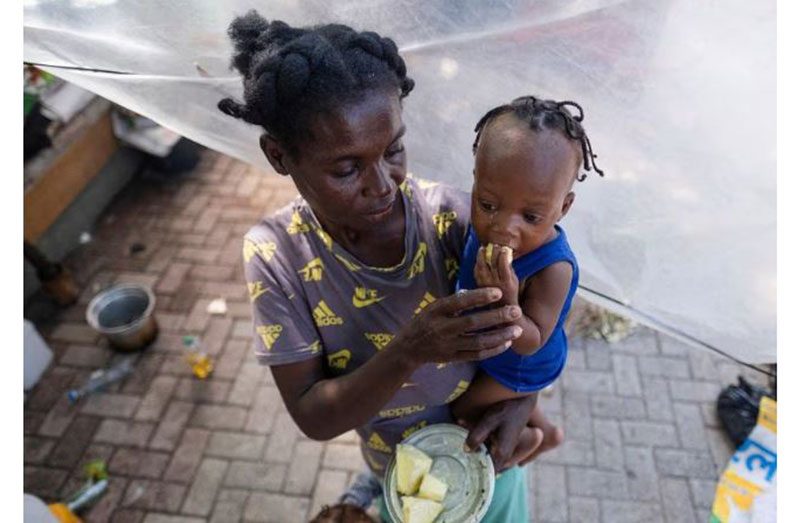(Reuters) – United Nations Secretary-General Antonio Guterres, visiting Haiti’s capital on Saturday, said international aid has not met the impoverished country’s growing humanitarian needs, and urged more support for the Haitian police to fight gangs.
The visit was meant to spotlight the crises facing the Caribbean country as it struggles to combat violent gangs that have largely overrun the capital Port-au-Prince, and Guterres made a plea for solidarity. The U.N. chief nine months ago proposed that one or more nations send a “rapid action force” to support Haiti’s security services. No such force has yet been deployed as no country has stepped up to take the lead.
“On the humanitarian front, the needs are increasing, but the international response is not,” Guterres told a news conference after meeting with Prime Minister Ariel Henry.
The two discussed the importance of a security force to curb gang activity so Haiti can distribute humanitarian aid, expand the economy and develop stronger political processes, he added.
“We are in full agreement about the need for the international community, the (U.N.) Security Council and member countries to provide the necessary forces for the international community to come and support the Haitian police,” Guterres said. Elections also were a topic of discussion, he said. “We also discussed different steps that are being taken … for credible elections to be able to take place.”
Henry, who took power in 2021 days after the assassination of President Jovenel Moise, has repeatedly postponed elections, citing first an August 2021 earthquake that killed more than 2,000 people, and then gang violence. He has pledged to leave office by Feb. 7, 2024.
Guterres in April said the insecurity in Port-au-Prince was comparable to that in countries in armed conflict, and that Haitians were facing one of the worst human rights crises in decades.
Last September, gangs worsened the humanitarian situation by blocking a fuel terminal for six weeks, halting most economic activity. The U.N. Security Council in October sanctioned Haiti’s most powerful gangster, who was accused of leading the blockade to protest government fuel subsidies cuts. The United States and Canada have also imposed sanctions on Haitian political figures and business people.
While there has been broad support for Guterres’ proposal to create a rapid action force, with several countries expressing interest in contributing, none has volunteered to lead a deployment, diplomats say.
Countries have been wary of supporting the unelected administration under Henry, who has said fair elections cannot be held under the current insecurity.



.jpg)









